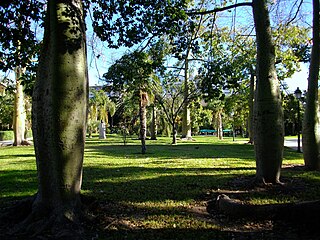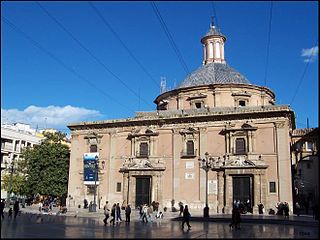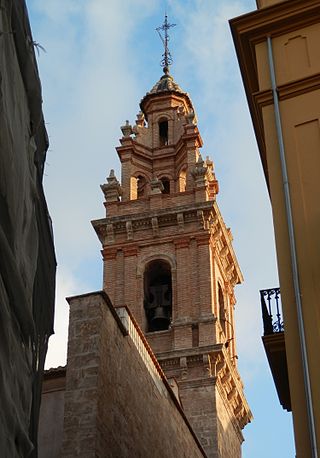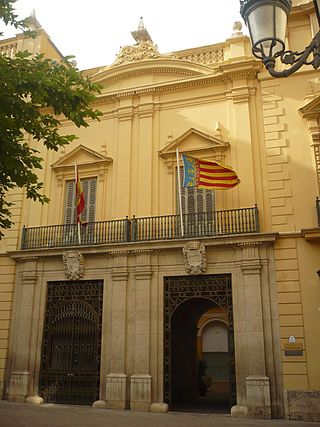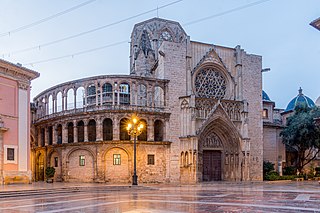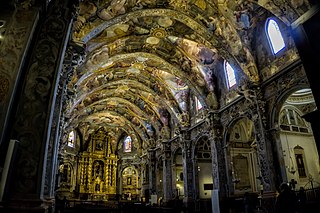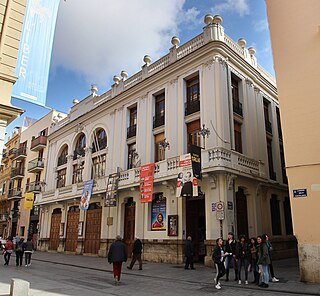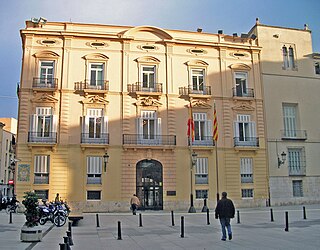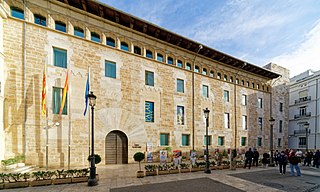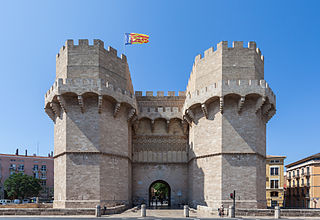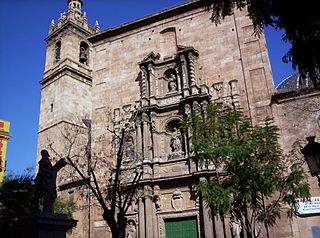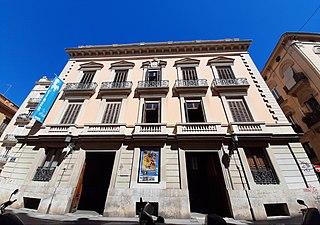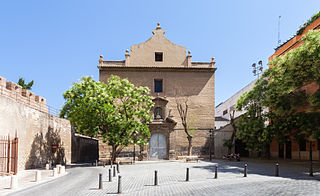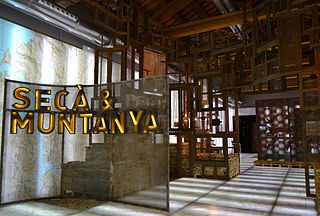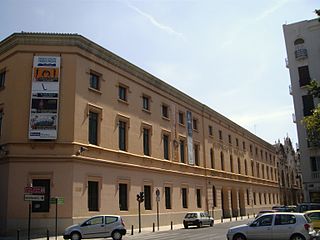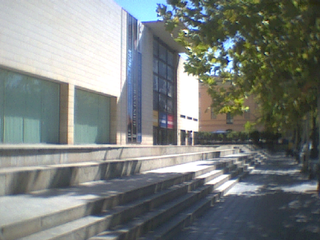Self-guided Sightseeing Tour #3 in Valencia, Spain
Legend
Guided Free Walking Tours
Book free guided walking tours in Valencia.
Guided Sightseeing Tours
Book guided sightseeing tours and activities in Valencia.
Tour Facts
6.8 km
105 m
Experience Valencia in Spain in a whole new way with our free self-guided sightseeing tour. This site not only offers you practical information and insider tips, but also a rich variety of activities and sights you shouldn't miss. Whether you love art and culture, want to explore historical sites or simply want to experience the vibrant atmosphere of a lively city - you'll find everything you need for your personal adventure here.
Activities in ValenciaIndividual Sights in ValenciaSight 1: Jardí de Monforte
The Monforte Garden, also known as Romero's orchard, is an ornamental garden in the city of Valencia, located in the Exhibition district, between Calle de Montfort, Plaza de la Legion Española and the Quirón clinic.
Sight 2: Jardins del Real
The Jardines del Real, also called Jardines de Viveros, are an urban public park in Spain located in the city of Valencia.
Sight 3: Museu de Ciències Naturals
The Natural Science Museum of Valencia (Spain) is located at Jardines del Real.
Sight 4: Almodí
The Almudín building is located in Plaza Sant Lluís Bertrán number 1 in the city of Valencia (Spain).
Sight 5: Basilica of the Virgin of the Helpless
The Basilica of the Virgin of the Forsaken in the city of Valencia houses the image of the Virgin of the same name, the most venerated by Valencians.
Sight 6: Banys de l'Almirall
The Admiral's Baths is a building in the neighborhood of La Xerea, district of the Old Town of Valencia near the Palace of the Admiral of Aragon, of Islamic architecture, built in the thirteenth century and used until the twentieth. The Admiral's Bath is a humble bathing building that serves to learn how the daily life of the less favored classes of the city of Valencia worked. Sociability developed between women and men, sexes who met on different days or at different times. Bathing was an exercise in practical hygiene and allows us to learn about the social relations of each of the periods.
Sight 7: Iglesia de San Juan del Hospital
The church of San Juan del Hospital, Cistercian Gothic with some Romanesque elements, is the oldest in the city of Valencia. Located inside a block bounded between the streets of La Mar, Sant Cristòfol, del Miracle and Trinquet de Cavallers, in the district of La Xerea, within the district of Ciutat Vella, its name is due to the Order of Saint John of the Hospital or Order of Malta. Since 1943, it has been a historical-artistic monument and since 1966 it has been directed by Opus Dei.
Sight 8: Iglesia de San Esteban
St. Stephen's Church is a Catholic parish church located in the Plaça de Sant Esteve in the city of Valencia, Valencian Community, Spain.
Sight 9: Palau del marques de campo
The Palace of the Marquis of Campo or of the Berbedel is located in the Plaza del Arquebisbe n. 3 in the city of Valencia. It is a residential building built in the seventeenth century, with works carried out in the nineteenth century. It houses the City Museum.
Sight 10: Valencia Cathedral
Get Ticket*Valencia Cathedral, at greater length the Metropolitan Cathedral–Basilica of the Assumption of Our Lady of Valencia, also known as St Mary's Cathedral, is a Catholic church in Valencia, Spain.
Sight 11: Església de Santa Caterina
St. Catherine's Church is a Gothic-style Catholic church located in the city of Valencia, Spain at the southern end of Plaza de la Reina.
Sight 12: Central Market
Get Ticket*Mercado Central or Mercat Central is a public market located across from the Llotja de la Seda and the Church of Santos Juanes in central Valencia, Spain. It is one of the main works of the Valencian Art Nouveau.
Sight 13: Royal Parish of the St Johns
The Church of Santos Juanes or Sant Joan del Mercat is a Catholic church located in the Mercat neighborhood of the city of Valencia, Spain. The church is also denominated the Real Parroquia de los Santos Juanes or San Juan del Mercado due to its location adjacent to the city Central Market and facing the Llotja de la Seda building.
Sight 14: Silk Exchange
Get Ticket*The Lonja de la Seda is a late Valencian Gothic-style civil building in Valencia, Spain. It is a principal tourist attraction in the city.
Sight 15: Església de Sant Nicolau
The Church of Sant Nicolau de Bari and Sant Pere Màrtir is a Valencian Gothic style, Catholic parish church located in Valencia, Spain.
Sight 16: Teatre Talia
The Talia Theater in Valencia is located at number 31 Calle de los Cavalleros in the capital of the Turia. The building, owned by the Casa dels Obrers de San Vicente Ferrer, has 100 years of history. By virtue of an agreement, the space has been managed since 1992 by Teatres de la Generalitat Valenciana. The hall has 243 fixed seats, 62 boxes on the first floor, 48 amphitheatre seats and 36 boxes on the second floor.
Sight 17: Palau de la Batlia
The palace of the Batlia, or of the Jàudenes, is located in the Plaza de Manises in Valencia, in the neighborhood of La Seu. It is the headquarters of the Provincial Council of Valencia. It was declared a Historic-Artistic Monument in 1962.
Sight 18: Palau de Benicarló
The Palace of Benicarló is an aristocratic palace of Valencian Gothic and Renaissance styles located in the city of Valencia, Spain. It is now the headquarters of the Valencian Parliament.
Sight 19: Torres dels Serrans
The Serrans Gate or Serranos Gate, also known as Serrans Towers or Serranos Towers is one of the twelve gates that formed part of the ancient city wall, the Christian Wall, of the city of Valencia, Spain. It was built in Valencian Gothic style at the end of the 14th century. Its name is probably due to its location in the northwest of the old city centre, making it the entry point for the royal road connecting Valencia with the comarca or district of Els Serrans as well as the entry point for the royal road to Barcelona, or because the majority of settlers near there in the time of James I of Aragon were from the area around Teruel, whose inhabitants were often called serrans by the Valencians. Alternatively, the gate may also have been named after an important family, the Serrans, who lived in a street with the same name.
Sight 20: Parróquia de la Santísima Cruz
The Church of the Holy Cross, located in the Plaza del Carmen, is one of the most important religious buildings in Valencia, especially for its artistic richness both inside and outside. The building has had the title of National Historic-Artistic Monument since 1983 and is also considered an Asset of Cultural Interest of the city of Valencia.
Sight 21: Consell Valencià de Cultura
The Valencian Council of Culture (CVC) is a consultative and advisory institution of the Generalitat Valenciana in specific matters related to Valencian culture, with the mission of ensuring the defense and promotion of the linguistic and cultural values of the Community. It is made up of 21 members appointed at the proposal of the different political parties represented in the Valencian Parliament.
Sight 22: Museo de los Soldaditos de Plomo L'Iber
The L'Iber Tin Soldier Museum is located at Calle Caballeros number 20-22, in the old town of the city of Valencia, (Spain).
Wikipedia: Museo de Soldaditos de Plomo L’Iber (ES), Website
Sight 23: Església de Santa Úrsula
The Convent of Santa Úrsula is a Roman Catholic convent located in the city center of Valencia, Spain.
Sight 24: Torres de Quart
The Torres de Quart or Puerta de Quart is one of the two remaining gates of the old Valencia city wall. It was built between 1441 and 1493. It was still in use during the Peninsular War when it was marked by cannonballs and musket shots.
Sight 25: L'ETNO - Museu Valencià d'Etnologia
The Valencian Museum of Ethnology is a museum located in the city of Valencia, mediterranean Spain. The museum mission defines it as cultural institution primarily devoted to collect, research and communicate the tangible and intangible heritage related to traditional and popular Valencian culture. The mission underlines that the museum also aims to permanently question fundamental aspects of the culture, as the dynamics that built it and force it to evolve, as well as its diversity. Although fundamentally devoted to Valencian cultural identity within a Mediterranean context, this museum also works to give visitors the chance to understand the challenges and dynamics of culture as a whole and from a contemporary perspective.
Sight 26: Museu de Prehistòria de València
The Prehistory Museum of Valencia is a museum of the city of Valencia, in Spain, that exposes archaeological materials covering from Paleolithic to the Visigoths period.
Sight 27: Valencian Institute of Modern Art
The Institut Valencià d'Art Modern, also known by the acronym IVAM, was the first center of modern art created in Spain, opening in 1989 in the city of Valencia. The Institut Valencià d'Art Modern is an important center for modern and contemporary art in Spain and Europe. Nuria Enguita Mayo was the Director of the museum between September 2020 and February 2024.
Share
How likely are you to recommend us?
Disclaimer Please be aware of your surroundings and do not enter private property. We are not liable for any damages that occur during the tours.
GPX-Download For navigation apps and GPS devices you can download the tour as a GPX file.

